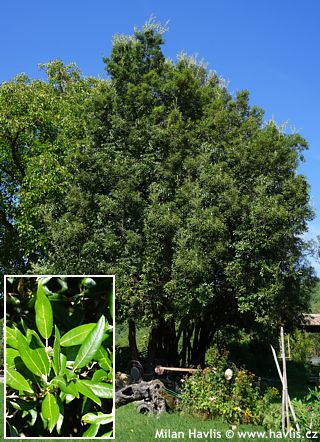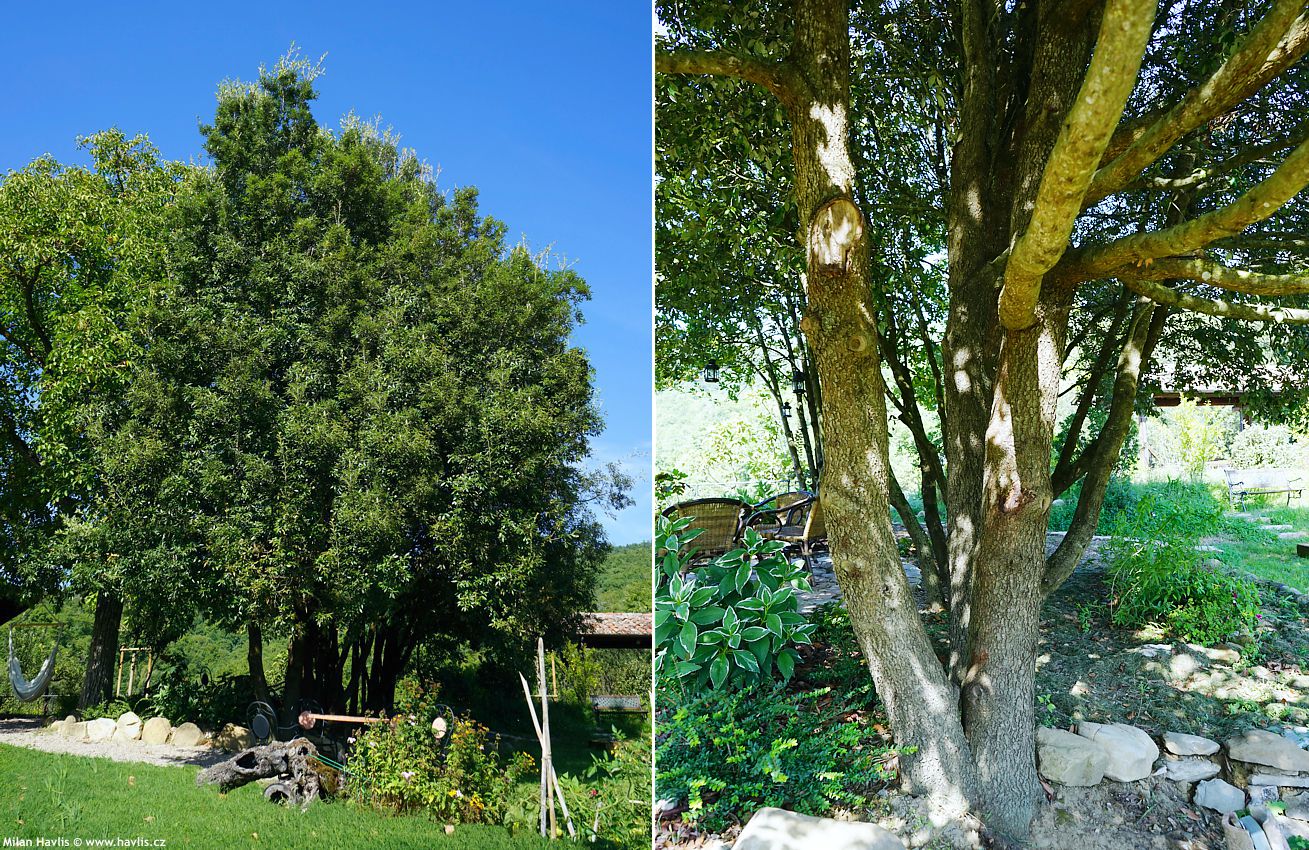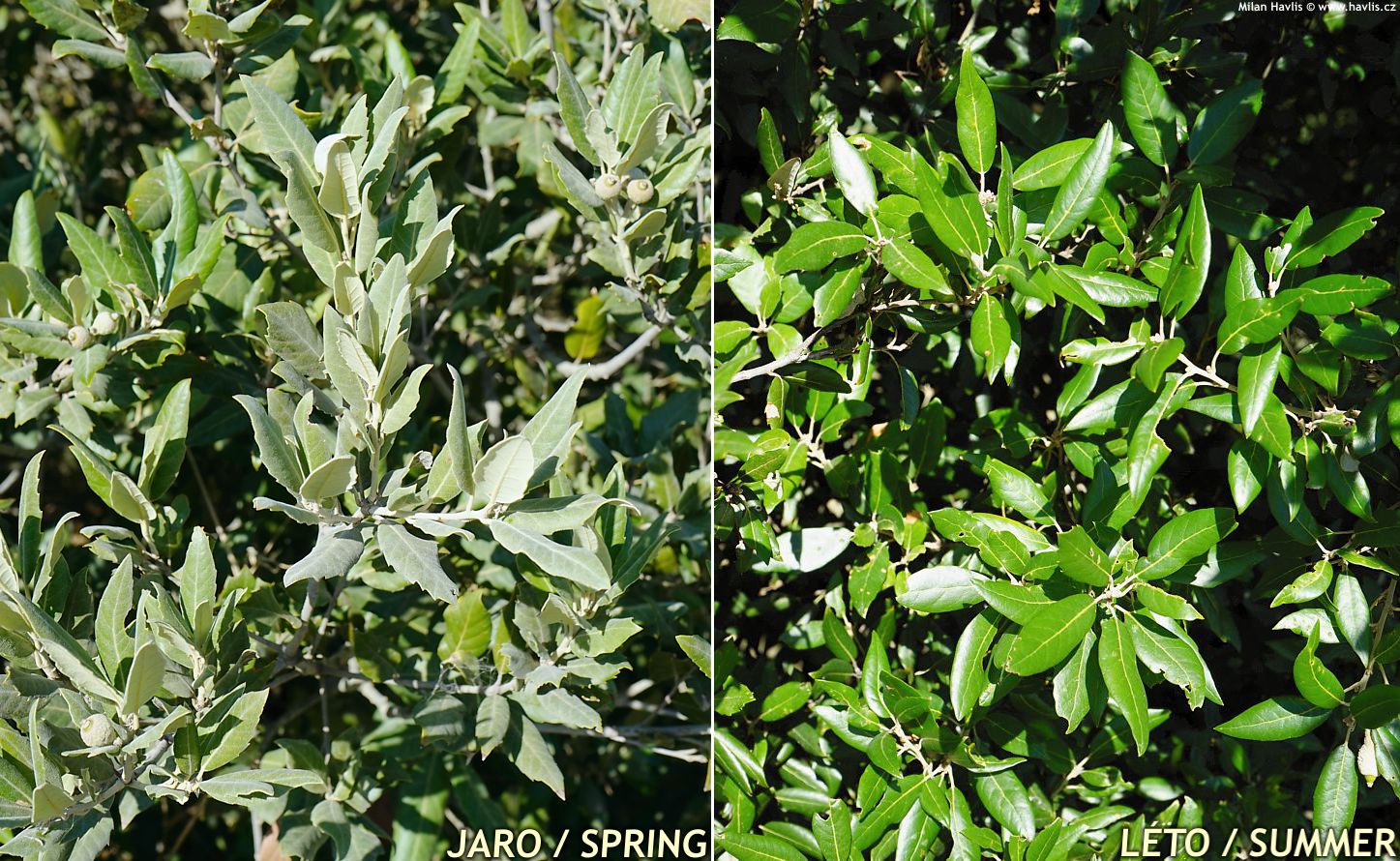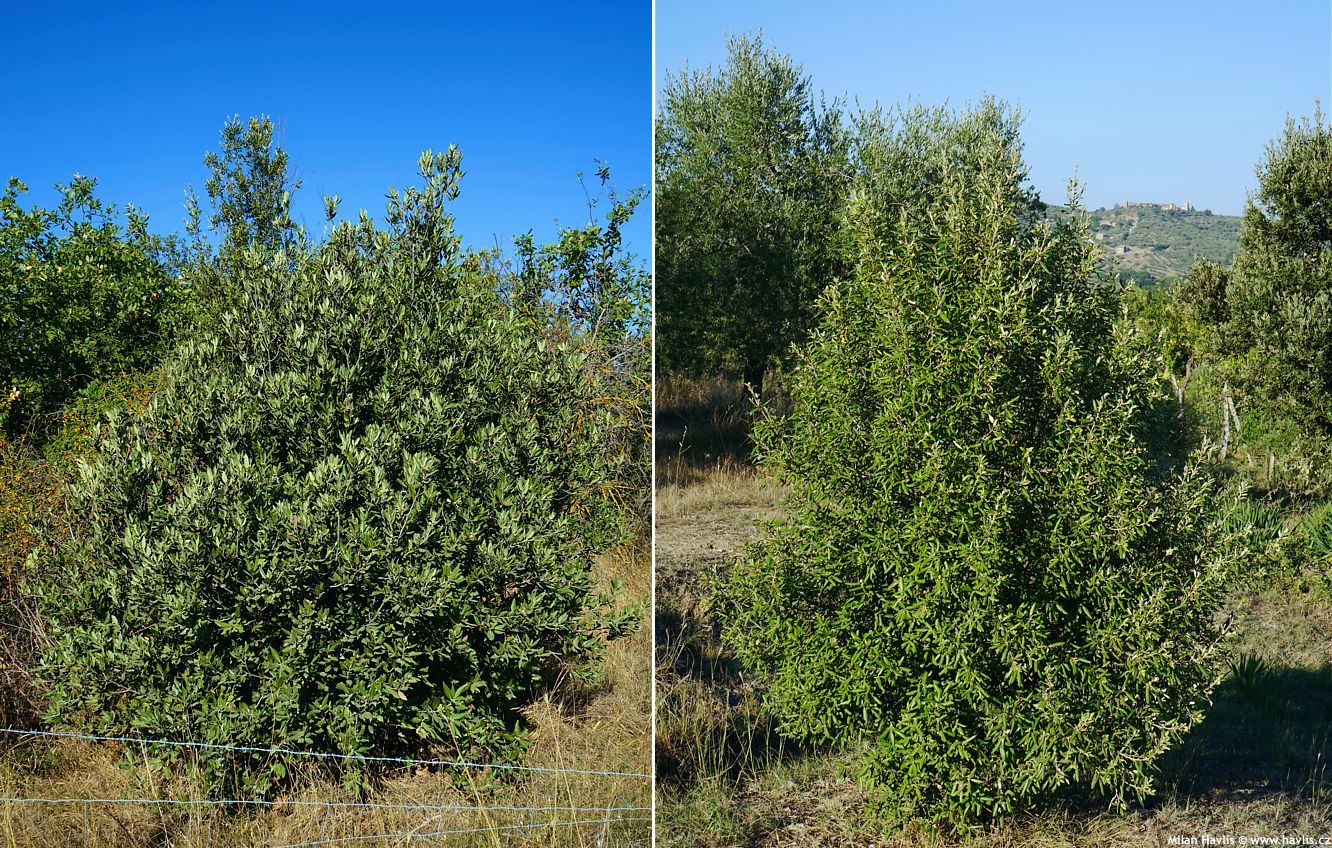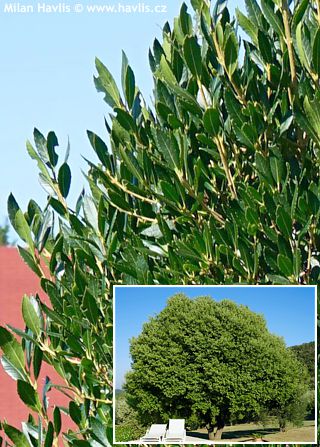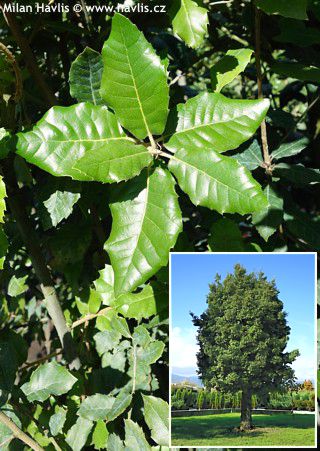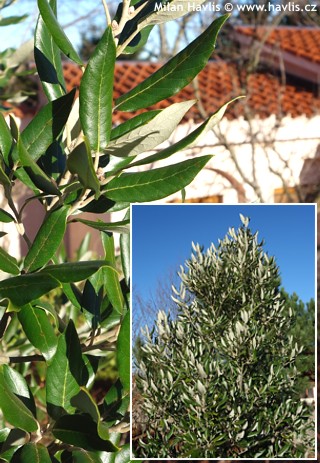Quercus ilex var. integrifolia holm oak, holly oak


Quercus
Holm oak or holly oak (holm is an old word for holly) is native to the Mediterranean and is spread from southern parts of Italy, France, Spain, and Portugal to west Balkan and milder parts of North Africa. In the past it occupied vast areas forming evergreen forests most of which are chopped down today. It was first described in 1753 and until this day many sources claim it is not drought tolerant. In fact, it very drought tolerant once established which is why it is commonly cultivated in heat-accumulated and paved city squares. In the wild it grows in altitudes from 0 to 1400 m above sea level.Young plants are fast growers making some 30 cm to one meter per year. They grow mostly upright when young, slowing down with age, forming handsome and bushy canopies which are initially oval-shaped and later dome-shaped or even mushroom-like which turns out best if cultivated as a multistemmed tree. Older trees are very beautiful and cast a deep shade so desired in hot summers. Shrubs are used as long-lived hedges and windbreaks.
We began testing this plant after 2010. Young plants with soft wood had no chance to survive the first winter outside (-24 °C), but trees with older and woody trunks and branches showed surprising hardiness in Czech winters (USDA zone 6). They also proved to cope well with late winter temperature swings without any damage.
Holm oak is not too picky about soil type provided it is well drained. It can even take less fertile soil. Never plant it in heavy clay and water-logged sites where its roots may rot. Even moisture is needed in the first season after transplanting, then it will do with occasional rain. It loves sun and warmth, never plant it in exposed areas of zones 6 borderline. For cultivation in Central European conditions always look for plants with hardened wood which is not prone to frost damage. Pruning is best done in early spring and light trimming is possible in midsummer. Hardiness trialed and proved down to -24°C (USDA zone 6).
Last update 15-01-2023
Goods are shipped all over Europe. For Russia and U.K. and for further details please read about SHIPPING OPTIONS HERE.
Are you interested in a serious discount for orders NOV-FEB? Check your options here.
THE PRICES INCLUDE VAT of 15%. For quick conversion you can use 1 CZK = approx. 0.04 EUR
- STANDARD QUALITY - Plants of this group are 1st class quality with number of branches and overall density adequate to their size and age, considering they were container grown.
- DE LUXE QUALITY - This label guarantees a luxurious quality of manually selected plants that, compared to their height and age, are exceptionally dense and beautiful.
- EXTRA - These plants are usually mature and bigger specimens with exceptional overall appearance.
- STANDARD (as described in the plant form) means a tree with a trunk of 190-210 cm and a crown at the top, unless specified differently. The commercial size for trees is their girth measured in the height of 1m from ground.
- HOBBY - These plants are of the same quality as our standard-quality plants but younger and therefore cheaper.
- SHRUB - a woody plant with branches growing bushy from the ground level.
- HALF-STANDARD or MINI-STANDARD - a small tree with shorter trunk, its size is usually specified.
- FEATHERED - These are trees with branches growing already from the base of the trunk and up along the stem.
- GRASSES and PERENNIALS - Sizes given usually read the diameter of the pot or the clump, as specified.












